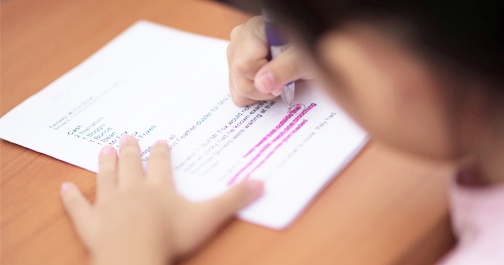Having no homework (except for a couple of worksheets) may be what your child is looking forward to this June holiday.
But while your child may be excited to try out that new sport or play his or her new Xbox game, the content he or she has spent half a year mastering can start to fade from his or her memory.
As a parent, part of ensuring that your child has an exciting and enriching holiday is about striking a balance between work and fun.
Here are 3 ways to keep your child engaged this June holiday!
The holiday period is a good time for your child to explore some non-academic interests. Holiday workshops offer your child a chance to try out something he or she has been interested in without requiring a long-term commitment. Don’t hesitate to choose something a little off the beaten track! At this young age, exposing to your child to an array of subject matters can help widen his or her academic horizons in the future.
If your child loves to act, dance and sing, he or she will love our new captivating programme, Dream Stage: Daring Very Daring Pirates. The Learning Lab is delighted to collaborate with Singapore’s funniest theatre and events company, Dream Academy, to bring your child this unique and fun-filled drama workshop.

Helmed by Chief Dim Sum Dolly Selena Tan, the three day-programme is designed specially for children aged 7 to 9 and offers your child an exclusive glimpse into the world of theatre.
Whether it's learning how act or letting your child try his or her hand at coding during our Coding Workshops, a variety of special programmes await your child this June at The Learning Lab.

How did your child fare in his or her recent semestral or term assesments? If he or she is facing certain areas of difficulty with school work— don’t panic, there’s still time! The June holiday period is an ideal time to work on areas of weakness while revising what he or she has learnt in Semester 1.
Here are three things your child can do to tackle areas of weakness:
1. Encourage your child to look through his or her past work
This is a good way for him or her to review topics and content that are going to be tested for the upcoming exam.
2. Go through your child's corrections with him or her
Analysing past errors and identifying the root cause(s) are important — it helps your child to reflect on areas of weakness and refine knowledge of examinable topics or chapters.
3. Ensure your child complete his or her holiday homework
Your child's teachers may have given him or her review worksheets as holiday assignments. These worksheets, which may be subject-specific, are great in helping your child reinforce his or her understanding in the topics covered during the first half of the year. A strong and solid foundation will help pave the way to a greater understanding of the newer topics that will be introduced in the upcoming terms.
For your young learner:
Instead of just giving your preschool child a book to read, try reading stories aloud to him or her instead. Storytelling is a fun way to get your child interested in reading — you can even make it more engaging by getting him or her to read some lines with you. When reading becomes an inclusive activity where your child can also participate in telling, guessing and manipulating the story, it creates a fun and enjoyable learning experience for your child.
Research by Dominic Massaro, a professor emeritus in psychology at the University of California, Santa Cruz found that reading aloud is the best way to help children develop word mastery and grammatical understanding. Massaro, who studies language acquisition and literacy, also mentioned that although parents can build their children’s vocabularies by talking to them, reading to them is more effective.
For your older child:
Science doesn’t have to be boring for your child! There are many 'DIY' experiments available online that you and your child can try out at home.
While conducting the experiment, you may want to let your child take the lead. As he or she takes you through the steps of an experiment, your child will have to recall and reinforce the Science concepts that he or she has learnt. You can even ask your child some questions about the experiment to test his or her understanding of the topic.
Find out how you and your child can make your very own lemon battery by downloading our guide here. This is one of the exciting, hands-on activities our TLL students try out in one of their Science lessons.
As a parent, we know that you are always looking out for ways to improve your child's academic performance or help him or her maintain good grades.
At The Learning Lab, your child attends more than just a tuition class. Besides focusing on exams skills, our core programmes also engage your child and nurture his or her intellectual curiosity. Lessons include components on critical analysis skills to help your child gain a greater insight with regard to the real world content if the TLL syllabus.
The Learning Lab is now available at 9 locations, including the Northeast at Seletar Mall, from June 2018.
Contact us to find a suitable class for your child — email enquiry@thelearninglab.com.sg or call us at 6733 8711 and we will be happy to assist you.